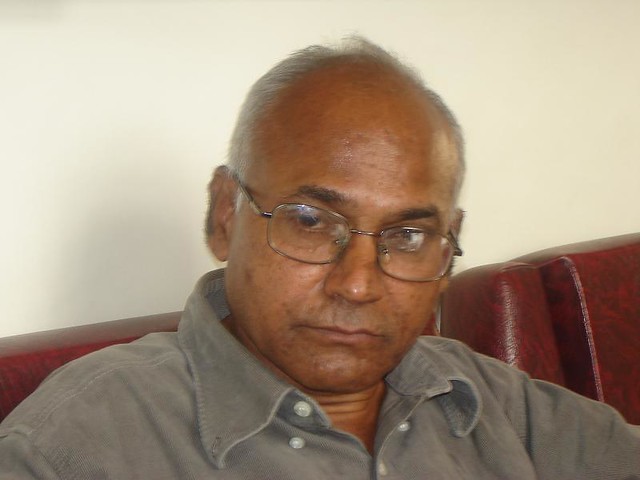Police have issued notice to Ilaiah for his write up “hurting religious sentiment”
By TCN News,
Hyderabad: The Maulana Azad National Urdu University Teacher’s Association (MANUUTA) has come out in support of Professor Kancha Ilaiah, director of Alberuni Centre for the Study of Social Exclusion and Inclusive Policy, against whom a case has been registered for “hurting religious sentiments” and condemned it as “an infringement upon the rights of academics.”
The MANNUTA held an emergency meeting on Wednesday to protest the FIR that has been lodged at Sultan Bazaar police station against Professor Ilaiah by Balaswami, Thirupati Naik, Srinivas and Ashok belonging to the VHP. Consequently, the police have issued a notice to Professor Ilaiah, the eminent social scientist, for expressing his views in the form of an academic article.

Kancha Ilaiah (TCN file photo)
“A large number of teachers condemned this as it is an infringement upon the rights of academics. The teachers passed a resolution clearly stating that their freedom of expression which is their democratic right as citizens of India, is being curtailed and needs to be protected,” a statement from MANUU said here.
Professor Ilaiah had written an opinion piece in Telugu newspaper Andhra Jyothi after which the VHP people lodged the complaint with police alleging that the write up had “hurt their religious sentiments.” The complaint was filed on May 9, the same day when his article titled ‘Devudu Prajasamya Vada Kada’ (IS God a democrat?) was published.
Police sought an advice from senior assistant public prosecutor, who advised registration of a case under section 153 (A) and section 295 (A), which empower the authorities to act against people who commit deliberate and malicious acts aiming at outraging religious sentiments and spreading enmity between groups.
Members of the teachers association spoke strongly against the political interference in the academic culture of Universities. The meeting was attended by Deans, Directors, Heads of different Departments, Faculty Members and Non–Teaching Staff.
